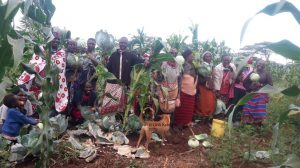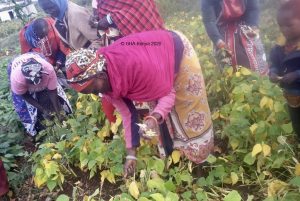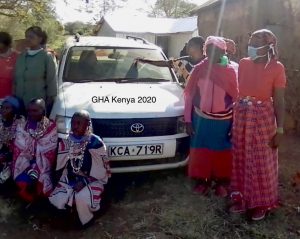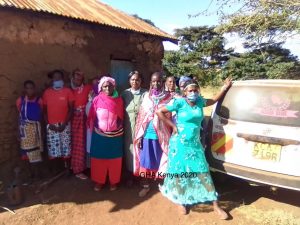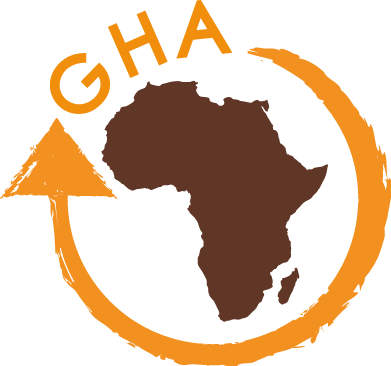AGRICULTURAL COOPERATIVE “BOGA”
Objective : To allow the empowerment of women and rise their
standard of living.
Object: To develop an agricultural cooperative for a group of maasai women.
Localization : Kenya, Kajiado County, Loitokitok Sub County, Kuku Group Ranch, Ole Polos community.
Duration : June 2017 / 2018 / 2019/ June 2020.
Local Partners : Nabulaa CBO, Chef Kuku location.
Finantial partners: GHA, OCCITANIE La REGION, AGENCE MICRO PROJETS.
Status: COMPLETED
This project, called “BOGA” (green vegetable), aims at developing the empowerment of 25 women of the CBO Nabulaa, thus rising their income and securing their family supply of food.
It consists primarily in growing a crop over a 1 acre field (4784 m²). As a first step, that crop will allow to ensure a food-security net, while being a source of additional benefit via the surplus sale.
Those profits will then help to extend the project over a second acre, therefore assuring the durability of the whole undertaking.
BOGA is driven by two great purposes. First and foremost, it aims at reaching a certain level of food security and diversification for the concerned group. But the project also aspires to give the women a good chance at reaching a financial autonomy, notably by selling their production.
The sustainability of that project rests on a great solidarity within the group, established internal rules which guarantees the optimal functioning of the exploitation, as well as technical and management training provided by qualified local actors. The benefits from the first harvest and throughout the following ones will first allow a financial participation, and then hopefully a complete autonomy of the exploitation.
June / July 2017 Irrigation system 1:
A drip irrigation system is installed on 1 acre of land.
A base is built on four concrete pillars, but turns out not to be strong enough. It is quickly replaced by a backup wood base.


October / November 2017 first plantations:


November /December 2017 first harvest:
Cabbage, onions and watermelons.
The first harvest is not optimal.
Despite the presence of a night watchman, seedlings and vegetables are eaten by antelopes and zebras, while watermelons end up being devoured by a family of elephants.
Nevertheless, women share what’s left.
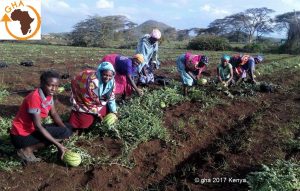
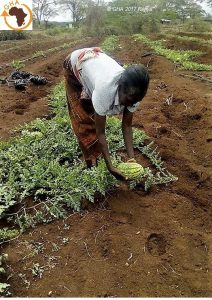
February 2018 Preparation of the field for the futurs plantations:
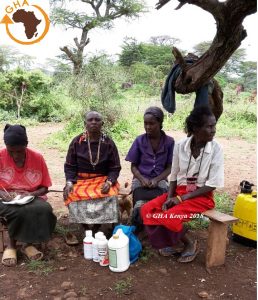
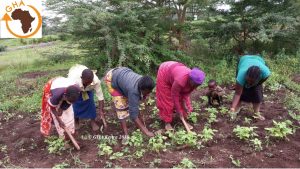
June 2018 : Second harvest
Excellent harvest of beans.Sale starts strong and allows the group to help purchasing the next vegetable rotation.
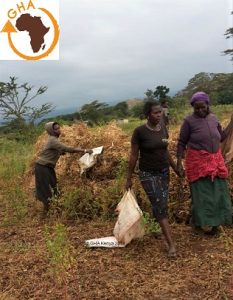
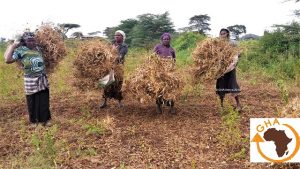
July 2018 Installation of the solar electric fence:
A solar electric barrier is installed all around the crops.
It aims to protect the plots from the wild and domestic pests.
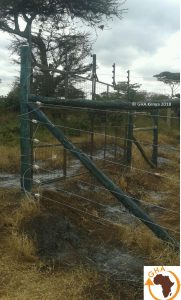
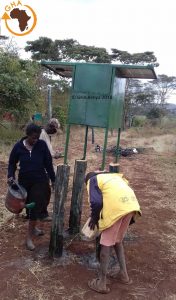
August/Sept 2018 Preparation of tomato planting:
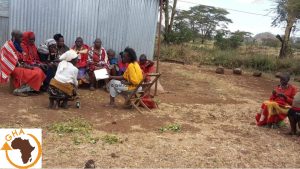
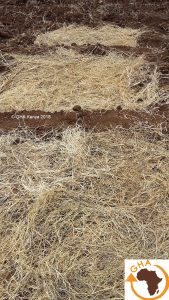
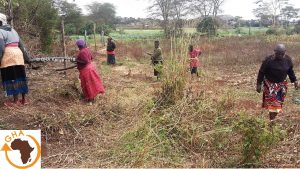
Sept/Oct 2018 Into the field:
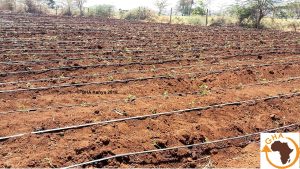
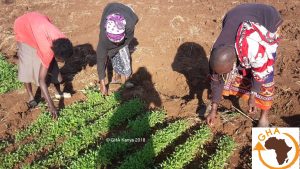
December 2018 / January 2019 Tomato harvest:
Women make boxes for the sale of tomatoes.
Overall, a very nice harvest despite a water pressure problem.
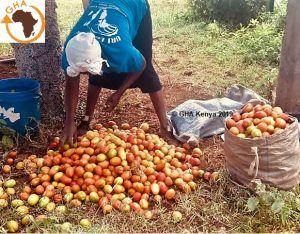
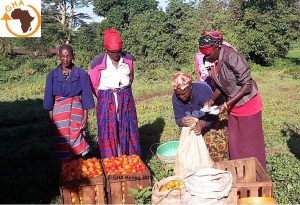
The iron base:
Thanks to the combined efforts of all, the solid and definitive iron base is in place.
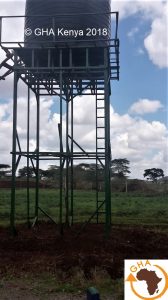
February April 2019 New rotation of crops:
The women clear the field for the next rotation. They decide to sow corn on the plot.
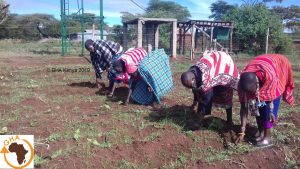
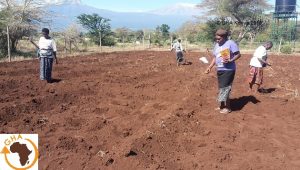
June 2019 Field visit of GHA managers:
The corn was not sown well and watering was insufficient. After a meeting with all the women beneficiaries of the project, we decide to change our strategy. We recruit a trainer to accompany them in their next vegetable rotation and decide to replace corn with cabbage. Before that, readjustments are necessary and the construction of the second water reserve provided for in the project must be undertaken as quickly as possible. We distribute t-shirts and caps from the Occitanie region, which is one of the donors of this project.
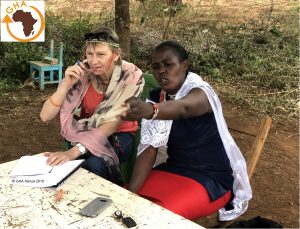
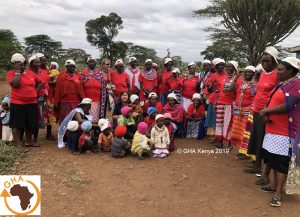
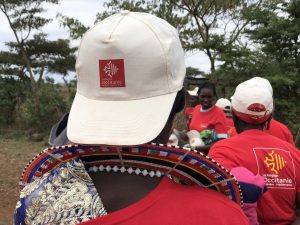
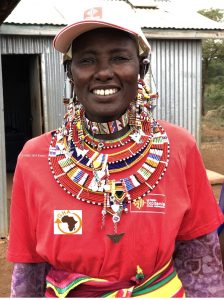
July / August 2019 :
Work for the second water reserve is starting, a secure basin will be dug in the ground. This solution is the most suited to the problem of water supply for this project. Whenever necessary the water will be pumped and sent to the tank and then distributed via drip irrigation at the feet of the vegetables.
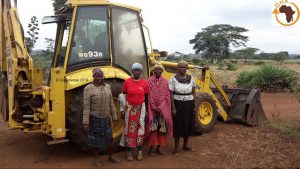
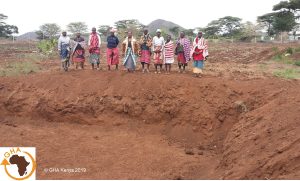

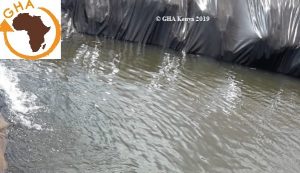
At the same time, the seedlings are in place, the (“bed”) furrows are established and the (“drips”) drip pipes are positioned in series. The field is divided into four blocks.
September / October 2019:
The group of women showcase their ability to organize themselves and produce a perfect harvest.
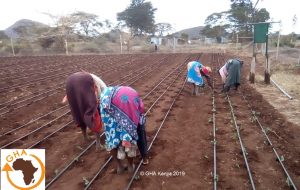
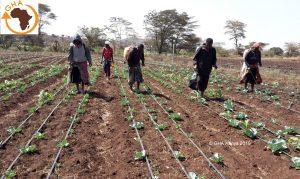
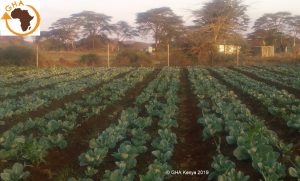
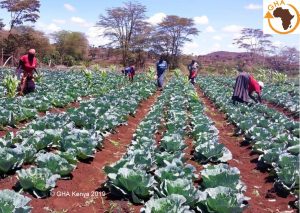
November and December 2019 Harvest and sale of cabbages:
It’s time to start harvesting on the first block.
The sale will be organized between the brokers and the direct sale to the Loitokitock and Kimana markets as the production of the 4 blocks progresses.
Despite an unprecedented episode of torrential rains, the group is doing everything possible to transport the cabbages to the markets on rutted and at times impassable tracks.
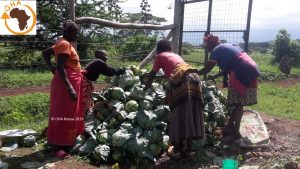
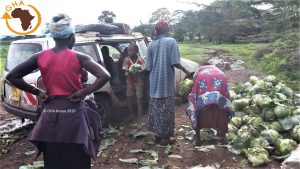
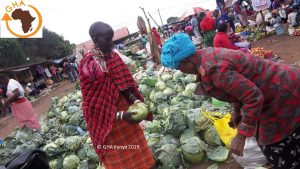
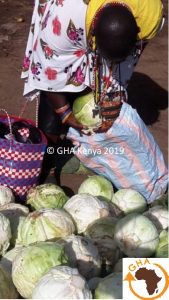
February and March 2020:
Preparation of seedlings and plantings for the new vegetable rotation.
The field must be cleaned and the drip system installed.
Women know how to check, repair and install the irrigation system on their own.
They chose to sow and plant different vegetables.
Spinach, chard, garlic, onions, tomatoes, cabbage, beans …. and some corn.
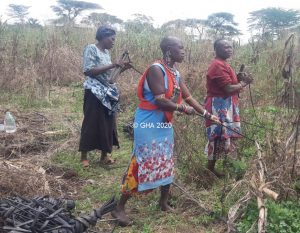
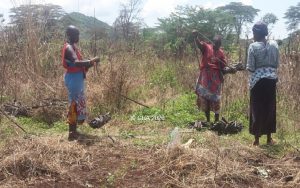
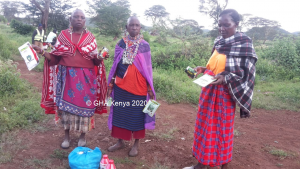
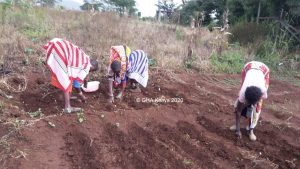
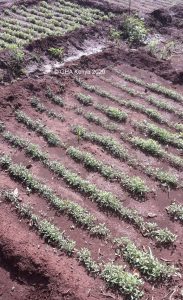
April 2020:
The women in the group are able to organize future quality harvests.
They are autonomous in the choice of vegetables that they have planted for this last rotation. They chose them by anticipating demand at the time of the future sale.
Alone, they organized the group’s work and each participated at their own pace according to their family possibilities.
It should not be forgotten that Maasai women have a heavy load of responsibilities within their families.
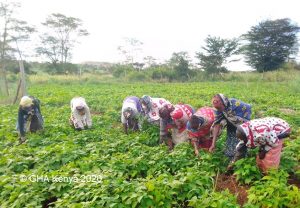
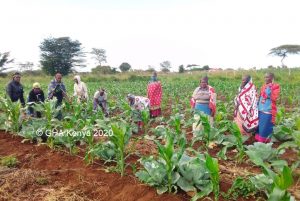
June 2020:
The harvests of the different plantations are organized.
The diversification of vegetables allows a sale as and when throughout the month.
The sale is organized on site by the women of the group, while waiting for the vehicle provided for the project to allow them to go to the various markets.
July 2020:
The vehicle has just been purchased, the women of the group are relieved. From now on, sales will be possible in the surrounding markets regardless of the weather !!!
It only remains to pass the permit for the two candidates of the group …
